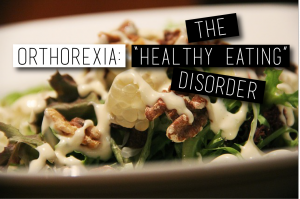
Previous research has found that autism and eating disorders can occur together, as 20-30% of adults with eating disorders have autism, and 3-10% of children and young people with eating disorders.
However, it has not been clear whether autistic traits result from eating disorders or precede them. This new longitudinal study, published in the Journal of Child Psychology and Psychiatry, finds that autistic traits in childhood come before behaviours characteristic of eating disorders, and so could be a risk factor for developing eating disorders.
Lead author Dr Francesca Solmi (UCL Psychiatry) said: “We have found that young children with autistic traits at age seven are more likely than their peers to end up developing eating disorder symptoms in adolescence.
“Most other studies looked at snapshots in time, rather than tracking people over multiple years, so it wasn’t clear whether autism increases the risk of eating disorders, or if symptoms of eating disorder could sometimes resemble autistic traits.”
The study involved 5,381 adolescents who have been participating in longitudinal research from birth as part of the University of Bristol’s Children of the 90s cohort study. The researchers considered whether they had autistic social traits at age 7, 11, 14 and 16, and disordered eating (fasting, purging, prolonged dieting, or binge-eating) at age 14.
The researchers investigated autistic traits reported by the mother, rather than a diagnosis of autism, meaning that the study findings would involve children who do not necessarily have autism, but also would include children with autism who might not have been diagnosed.
In the study group, 11.2% of girls reported at least one disordered eating behaviour within the previous year (7.3% experience them monthly and 3.9% weekly), compared to 3.6% of boys (2.3% monthly and 1.3% weekly).
Adolescents with eating disorders showed higher levels of autistic traits by age seven, suggesting that the autistic traits predated the disordered eating (as eating disorders are very rare at age seven), and therefore might pose a risk factor for eating disorders. Children who displayed higher autistic traits at age seven were 24% more likely to have weekly disordered eating behaviours at age 14. Further analysis confirmed that eating disorders at age 14 did not appear to increase autistic traits by age 16.
While the study did not investigate the reasons behind the relationship, the researchers point out that children with autism may have difficulties with social communication and developing friendships, which could contribute to higher rates of depression and anxiety at young ages. Disordered eating might result from dysfunctional methods of coping with these emotional difficulties.
Other autistic traits, while not included in the specific measure of autistic social traits used, may also be linked to eating disorders, such as rigidity of thinking, inflexible behaviours, unusual sensory processing, and tendencies towards repetitive behaviours.
Co-author Dr William Mandy (UCL Psychology & Language Sciences) said: “The next step is to learn more about why those with autistic traits have a higher risk of developing an eating disorder so we can then design interventions to prevent eating disorders.
“Around a fifth of women presenting with anorexia nervosa have high levels of autistic traits – and there is some evidence that these women benefit the least from current eating disorder treatment models. People with autism and eating disorders may need a different approach towards treatment.”
Senior author Professor Glyn Lewis (UCL Psychiatry) said: “Parents and other carers of children with autism should be aware there is an increased risk of developing eating disorders. Being alert to eating disordered behaviours and seeking help early could be helpful.”
Tom Quinn, eating disorder charity Beat’s director of external affairs, commented: “We welcome this important research identifying the greater risk of eating disorders among those with autism. Early intervention is so important in treating eating disorders and we hope this research will help parents and clinicians spot early signs of an eating disorder more rapidly and ensure those at risk of developing an eating disorder get the help they need. We encourage researchers to examine the results of this study and build on it, including by looking at what support could be given to those with autism to reduce the likelihood of an eating disorder developing.”



